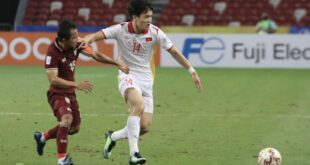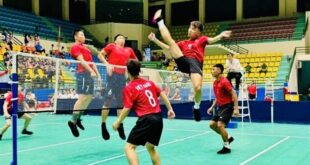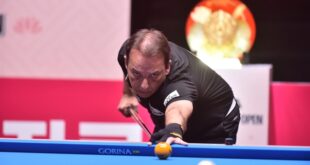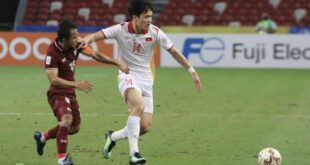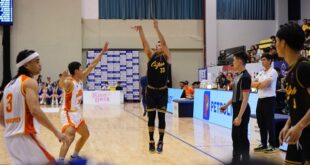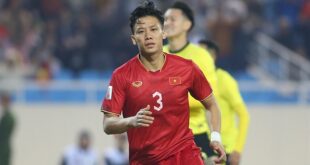At a bare-bones gym in the central Philippines, children from poor families in torn shoes put on frayed head guards and get to work in pursuit of their Olympic boxing dream — and a way out of poverty.
Aged 10-18, the young boxers spar in the Bago city gymnasium after school before sleeping under the ring’s canvas at night.
Located on the island of Negros, in the sugar-growing region which has some of the country’s starkest rich-poor divides, the city of 200,000 calls itself the Philippines “boxing capital”.
Eight of the 70 Filipino boxers to have made it to the Olympics got their start at the Bago City gym.
Boxers there work out on peeling punching bags under the buzz of giant old electric fans straining to give some relief from the oppressive tropical heat.
 |
|
This photo taken on June 5, 2024 shows Prystine Niche Cantancio (L) sparring during training at a boxing gym in Bago City, Negros Occidental province. Photo by AFP |
‘Life is hard here’
The most recent Bago Olympian, Rio 2016 light-flyweight Roger Ladon, failed to qualify for Paris leaving the city pining for a new poster boy.
“Life is hard here. Job opportunities are limited,” said coach Larry Semillano, a Bago native who fought at lightweight in the 2000 Sydney Olympics.
His 17 wards are mostly children of farmers, construction workers and tricycle drivers.
“To them, if they excel in it they believe they will have a better life,” said Ignacio Denila, the city government’s executive assistant for sports.
“All of them idolise (Manny) Pacquiao,” Denila told AFP, referring to the eight-weight world champion, who was also born in poverty, on the southern island of Mindanao.
“I hope to be recruited into the national team in order to join competitions and win medals abroad,” AJ Vicente, 17, one of Semillano’s current hopefuls, told AFP.
Bago lightweight Leopoldo Cantancio blazed the Olympic trail when he made it to the 1984 Los Angeles Games, reaching the round of 16. He also fought at the 1988 Seoul Olympics.
Bago fighters have since won one Olympic silver medal and one bronze.
Though Filipino boxers have yet to win gold, eight of the country’s 14 Olympic medals so far came from boxing — three silvers and five bronze.
Semillano believes Vicente, a right-handed flyweight who won a bronze at the Philippine national games last year, has a “70 percent” chance of eventually making it to the national team.
But “he needs to consume a lot more rice” before he can be considered for the 2028 Los Angeles Olympics or Brisbane in 2032, the coach added.
“The skill is there. What we’re trying to develop now is his power,” Semillano told AFP.
‘Farm work is backbreaking’
AJ’s father Jose Vicente, 50, brawled for meagre prize money at village-level Bago tournaments in his youth when he was not cutting and hauling sugar cane for 10 pesos a day (17 US cents).
“Farm work is backbreaking. I do not want my son to go through the same thing,” Jose, now a handyman at a provincial hospital, told AFP at the family’s small wood and bamboo home among sugar cane fields on the city’s outskirts.
“Dad wanted to become a boxer himself. I have decided to fulfil that dream for him,” said his son, whose more than a dozen boxing medals hang proudly on the living room wall.
From the age of seven children are welcome to join the training programme, said coach Semillano, who cooks for them while minding his two-year-old daughter Sydney as the young boxers do their laundry in the yard.
Last year, three Bago minors trained by Semillano qualified for the national government’s amateur boxing pool, an important next step for their Olympic ambitions.
The Bago city government-funded programme was launched in the mid-1960s by a sports-oriented mayor, Ramon Torres, and bore fruit in 1992 when light-flyweight Roel Velasco won a bronze medal at the Barcelona Olympics.
His younger brother Mansueto Velasco went one better with a light-flyweight silver in Atlanta in 1996.
‘No other girls to fight’
Schoolgirl Prystine Niche Cantancio is 11 years old, nicknamed Junela and a distant relative of Bago’s first Olympic boxer. She also trains at the gym, sparring against 10-year-old boys.
“I want to make my papa proud by following in his boxing footsteps,” she told AFP, referring to Junel Cantancio, a Philippines team boxer who did not make it to the Olympics.
Junela was seven when she put her collection of teddy bears in a cabinet and first pulled on boxing gloves, said her mother Lovely Christine Cantancio, who takes her daughter to practice sessions.
“She looks happy, except there are no other girls to fight,” Lovely said.
Her father retired from boxing and became a full-time soldier following a fight-related injury.
“Not all of them will be Olympians or make the national team,” said city sports official Denila.
“For me, what is important is they develop discipline, even if they do not achieve success in life.
“That’s really the purpose of sports — to develop you morally and spiritually.”
- Reduce Hair Loss with PURA D’OR Gold Label Shampoo
- Castor Oil Has Made a “Huge” Difference With Hair and Brow Growth
- Excessive hair loss in men: Signs of illness that cannot be subjective
- Dịch Vụ SEO Website ở Los Angeles, CA: đưa trang web doanh nghiệp bạn lên top Google
- Nails Salon Sierra Madre
 VnExpress News The News Gateway of Vietnam
VnExpress News The News Gateway of Vietnam
